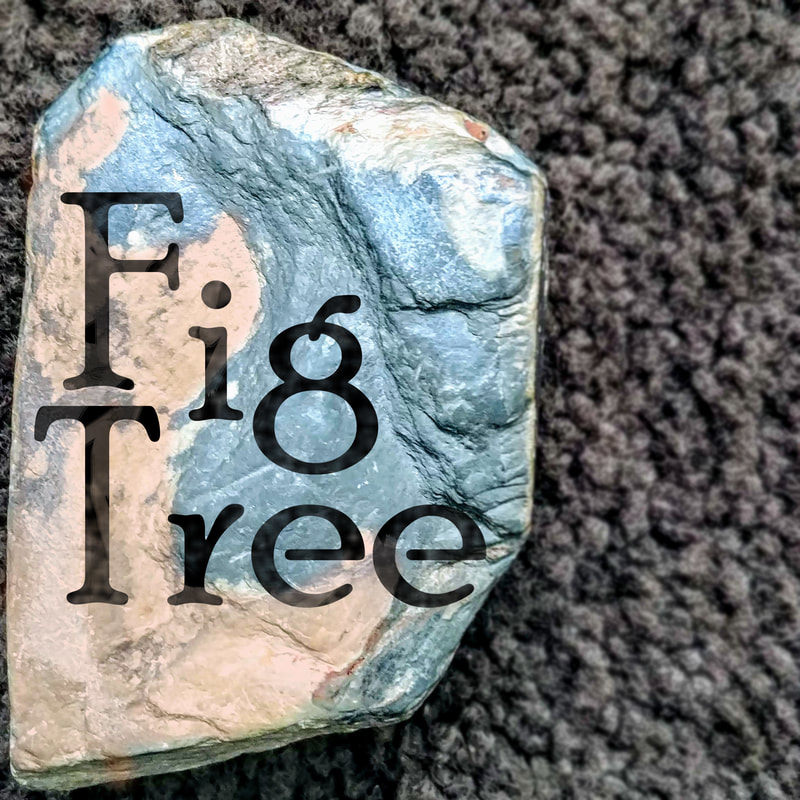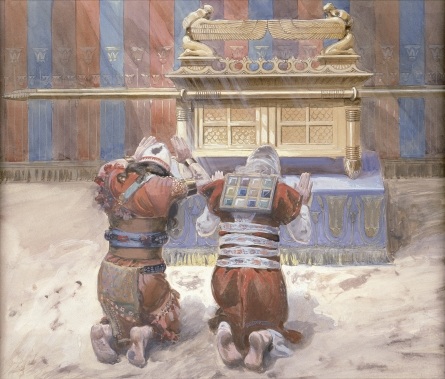|
-Rev Melissa Fain- 7 After the Lord had spoken these words to Job, he said to Eliphaz from Teman, “I’m angry at you and your two friends because you haven’t spoken about me correctly as did my servant Job. 8 So now, take seven bulls and seven rams, go to my servant Job, and prepare an entirely burned offering for yourselves. Job my servant will pray for you, and I will act favorably by not making fools of you because you didn’t speak correctly, as did my servant Job.” 9 Eliphaz from Teman, Bildad from Shuah, and Zophar from Naamah did what the Lord told them; and the Lord acted favorably toward Job. Job 42:7-9 CEB I have been witness on more than one occasion to the rise of a Zombie Church. It usually hits at the end of something: The end of a tenure of a well loved pastor. The moment where brokenness also signals the end of religious innocence. No matter what it is there’s this knowledge in the air. Something has died. Something can no longer be. A fear can be felt. It’s static in the air. Suffocating in its truth. Then there’s this collective lurch. “No! It’s not over!” Something manic covers over the fear. And something old begins to sing out. “Look!” they’re internally saying, “We can still sing the songs! Look!” they plead with one another in upbeat verse, “It still sounds real!” And it does. Everyone is in on it. Everyone is singing, because to not sing is to admit the truth that something has died and can never be the same. These churches no longer live, because there’s no life in what was. At the same time, they cannot die, because they refuse to look forward. Instead they become undead Zombie churches. Zombie churches are churches that refuse to face death instead of heed the call of Christ. Power is misplaced in objects and people instead of God. When death of an institution is imminent the choice is to push into the institution instead of walk the path of God. Here are some hard truths about Zombie churches:
The only path out for Zombie Churches: Start by accepting the mourning.I believe these things have been voiced in wounded ways. Congregants have called out the institution of Church, but the Church hasn’t listened. This is because while the Church has lost its voice when talking about death, they have also lost the ability to translate the voice of mourning. This is why I’m coming in as a third party translator. At face value, the mourning process sounds very much like heresy. Heresy is an opinion that is profoundly at odds with accepted belief. In the church, it’s an opinion that hits against everything the Church has called right. Like Psalm 137 ends with wanting the Babylonian babies to have their heads smashed against the rocks. There's nothing Godly about that act, yet there it is in the Bible. It’s there to remind us God is still present when our voices speak the heretical truth. Not that God is going to grant our prayers, but listen to the yowling prayer of acceptance. The howl of truth. I wanna go back to a former post for a moment. I had written. Matt Stone and Trey Parker had called the Book of Mormon an “atheist love letter to religion.” Near the beginning, the two main characters go to their mission field, in Uganda. The tribe sings this upbeat song “Hasa Diga Eebowai.” to the main characters. As the song continues one finds out it is actually a song of lament. Their people are being slaughtered, their women are being raped, and AIDs is rampant. What does Hasa Diga Eebowai mean? F you, God. It’s heresy! One of the main characters completely shuts down and refuses to participate. But that song was the natural first step to new life! This heretical lamentation would set in motion a way for the people to find something better. Naming death, and mourning its consequence, had to happen first, and it does. These Zombie Churches are unable to sit in the lamentation of the people they’ve bitten. Job’s friends couldn’t do it, and the Church can’t do it. It’s so offensive. It’s so outrageous. Not really because they are saying F you, God, but because they are really saying F you. It’s a statement of accountability. F the people who come to drop verses, but not help. F the people who say they support change, but then turn around and walk away. F the armchair theologians who always have an opinion but never a solution. I mention Job because something’s going on there that I don’t think we’ve explored. How does Zombie Churches avoid hearing and accepting the mourning voice of the wounded? The Fourth FriendThe church claims the fourth friend when the mourning begins. What do I mean? In Job, the devil makes a bet with God that Job has it too good. If he could just tempt him a little Job would crack. God takes up the bet, and the Devil takes away everything, including his family. As Job laments his friends first try to console him, but it turns into chastising when they realize Job is truly lamenting. They don’t like Job’s truth. Then, this mysterious fourth friend shows up, Elihu. At the end of the book, when God finally talks to Job, he asks Job’s three friends to make sacrifice and seek forgiveness. No where is Elihu mentioned in the forgiveness narrative. First, Job is an ancient Middle East morality play. It is not in the historical parts of the Hebrew Bible, but in the Wisdom Section. Therefore, it was never meant to be a history. It’s meant to raise questions, and get us to think about our relationship to God. Old questions are replaced with new questions, and God lives in those questions. I hope my new answers raise new questions for you, where you will find God. Second, I’m of the mind, and I’m not alone, the fourth friend was written into the text by someone who couldn’t sit with Job either. God asking for sacrifices is an older text than anything Elihu. Which is actually fitting, because it speaks to how many react to Lamentation, or mourning. Churches write themselves a new part in the text, to write themselves out of condemnation. Only, Elihu remains unredeemed. When Churches write themselves out of the story of mourning, they choose not to take the sacrificial power of the mourner, and die to their old ideas and practices. Elihu is the Zombie ChurchSometimes I ask myself if I’m clear enough, and the answer is usually no. From now on I’m trying to be bluntly clear. In Job, God doesn’t ask for sacrifices for Elihu. Creating a new text to hide an old problem means Elihu doesn’t get forgiveness. The three friends find new life in allowing their toxic theology to die. Elihu, on the other hand, gets nothing because he listened to nothing, and accepted nothing. Now let me be extra clear. Suggesting Elihu doesn’t need forgiveness is bad theology. We all fall short of the glory of God. None of us are perfect. Elihu is the Zombie Church, pretending they are the young church they used to be, before the fear of death. Elihu is just as old as the friends, and is his own unreliable narrator. Notice something important here. Job is blameless. His scandalous mourning is blameless. God is with Job and with everyone who accepts Job’s truth. That’s where God has drawn the line. This whole problem of dying churches and undead churches is God telling everyone, “I’m here,” and us choosing to stand where God is, or not. We drew the line because we were afraid of where God went. We don’t get to decide where God is going. We only get the opportunity to follow. But, here’s the horrible truth: It’s easier for a camel to go through the eye of a needle than a Zombie Church to find their way again. What about those who were spiritually killed by the Church? Next week. I've had great reading partners this week for this post:
Elie Wiesel's Night Samuel Balintine's Job Carol Newsom's The Book of Job And my constant reading partner through all this: Walter Brueggemann's The Prophetic Imagination -Rev Melissa Fain- Paul, called to be an apostle of Christ Jesus by the will of God, and our brother Sosthenes, To the church of God that is in Corinth, to those who are sanctified in Christ Jesus, called to be saints, together with all those who in every place call on the name of our Lord Jesus Christ, both their Lord and ours: Grace to you and peace from God our Father and the Lord Jesus Christ. I give thanks to my God always for you because of the grace of God that has been given you in Christ Jesus, for in every way you have been enriched in him, in speech and knowledge of every kind just as the testimony of Christ has been strengthened among you so that you are not lacking in any spiritual gift as you wait for the revealing of our Lord Jesus Christ. He will also strengthen you to the end, so that you may be blameless on the day of our Lord Jesus Christ. God is faithful; by him you were called into the fellowship of his Son, Jesus Christ our Lord. 1 Cor 1:1-9 NRSV Corinth was an interesting place. It was the capital of Achaia. So if you could call the Roman Empire a country, Achaia would be considered a state. Corinth is to Achaia as Atlanta is to Georgia- judicially speaking. Corinth was also a bustling center of commerce. Its location was ideal for business because of its prime location between two major ports on either side of it. In some ways this means we could relate Corinth to, let’s say Chattanooga: located just off a river and pulling business from both Georgia and Tennessee.
I could visit the mix of Atlanta and Chattanooga. So far, sounds like a nice place to visit. Until we get to the rest of the story… Perhaps it was Athens, or maybe it was just being a capital port city, but Corinth had a reputation. If it was Athens, we know it was the Greek center of educational prowess. Corinth was just north of Athens, and it’s prime location would have been seen as a threat to Athens. Now, for those of you who know your history, Athens and Sparta rarely got along with one another. It didn’t help that Corinth usually took the side of Sparta when disputes broke out. Athens coined a term for those Corinthians: Corinthianize. This term is no longer in use, so let me give you a definition: Corinthianize means to make something lewd, raunchy, or sexually immoral. Whether it’s Athens responding to what they see in Corinth, or Corinth living up to its name, history marks the city as the center for prostitution and other immoral behavior. The biggest evidence we can use to pinpoint this fact is their city goddess. (All Greek cities chose one from their pantheon.) Corinth chose Aphrodite. You might be thinking Aphrodite is simiply the goddess of love, we, at the time she was better known as the goddess of prostitution. So, step aside Atlanta and Chattanooga, apparently Corinth is closer to another American City, Las Vegas. You know, what happens in Corinth, stays in Corinth. Except when it doesn’t, and apparently it didn’t. I need to back track just a little to explain. After Paul found Christ on the road to Damascus, he spent most of his time traveling and sharing the story of Jesus. Somewhere during his trip he spent a few weeks starting a church in Thessalonica, followed by spending two years in Corinth! While he was there, he roomed with fellow Christians who happened to also be tent makers, like himself. He got to personally know the people; knew them by name. Eventually he moved on and left for Ephesus. When he left, things were apparently going well. The church was thriving. The people apparently understood the message Paul had shared. They had even set up a community meal where all members could come and share in a love feast. I would imagine Paul was pretty happy when he left. Then the word got out. While he was in Ephesus things went wrong. It all began to fall apart. First, there was the war of tongues. Different leaders of the church began to pretend they were speaking in tongues even though they were really just gibbering. No one could translate what they were saying; even they were clueless. The leaders did it because they became obsessed with one-upping one another. Secondly, they were misusing the communal meal. The well off were showing up early to the meal. They would get off of work early, and they would gorge themselves on the food leaving nothing for the poorer congregants who showed up late. Third, when a member of the congregation would have issue with another member they would ignore the church leadership and go straight to the city court for resolution. This could have been something like a congregant suing another congregant for speaking falsely when all they would have to do was talk it over with one of the leaders. Basically, taking something small and blowing it out of proportion. And remember how everyone knew the message Paul preached before he left? Well, it didn’t take long for that to digress as well. Some people had taken Paul’s words about salvation through Christ and took it to mean they were currently living a redeemed life. That might not sound all that wrong on the surface, but they took it as an excuse to say they were redeemed while doing “Corinthianized” type things. Let’s spill some tea, stories of prostitution got back to Paul. It was going on in the early church. In fact, it was so bad, Paul heard word of a man who was sleeping with his step-mother! What happens in Vegas stays in Vegas, but what happens in Corinth gets back to Paul… in two ways. First, there were some concerned church leaders who took the time to draft a letter a letter which no longer exists today, but I bet if it did it would be a page turner. I’m sure by the time we read through it we would be adding some sins to the laundry list I just mentioned. Second, some Corinthian servants traveled to Ephesis, where Paul was currently working. They came to talk and “visit.” Everything I just said is beginning to sound like an episode of the Jerry Springer Show! So, like a tabloid show, let’s take a breather from it for a moment and do the sermon version of a commercial break: also known as a side story. Did you know Abraham Lincoln used to be harsh with the written word? He was terrible! When he had a personal issue he would immediately draft a letter and send it anonymously to an editor or drop it on the side of the road knowing someone would find it! He never thought his words through first. He never marinated in his thoughts, mulled through his ideas. That is, until he did it one too many times and it backfired. The person who had been insulted figured out it was Lincoln who wrote the “anonymous letter” and challenged him to a duel! AND! He almost had to participate in it, save for the grace of God it was cancelled just minutes before it was to take place. The event turned his life around. He realized the power of words. He thought first and wrote second. Smart advice. Never send the first draft of an angry letter. Wati a day, rewrite it when you had time to think about your words. That actually advice from Dale Carnagie’s How to Win Friends and Influence People. I bring up Carnagie’s book, and Lincoln’s actions because technically we never left Corinth and their debaucherious tale. How many drafts do you think Paul had to write before he penned the final version to send to Corinth? Let’s pretend, shall we? Draft one: “You are completely hopeless! You are sheep without a shepherd. You know! I’ve got other churches, and I leave for one minute, and some guy is sleeping with his stepmother! Come on Corinth! You were better than this! If I came back, I would simply be wasting my time. You’re not saved people, and you never will be! I’m sorry I’ve wasted your time, Paul. [Crumple that one up and throw it on the floor.] Draft two: “Seriously, I’m completely stunned at how deep into the world of sin you have gotten. If you got any deeper I wouldn’t be able to dig you out. Now, you’re not hopeless but there isn’t much hope there. Don’t do anything else. You are on the edge and you shouldn’t trust your own judgement right now. Rushing over as soon as I put my tents up, Paul. [Crumple that one up and throw it on the floor.] Maybe Paul wrote a couple of drafts before penning 1 Corinthians, maybe he didn’t. After all, he did not mince words with the Corinth people. He told them, in no uncertain terms, they were wrong. The truth is, we have no idea how he wrote his letters, we just have the end result. The end result is much better than those fake drafts I just shared with you: To the church of God that is in Corinth, to those who are sanctified in the Christ Jesus, called to be saints, together with all those who in every place call on the name of our Lord Jesus Christ, both their Lord and ours: Grace to you and peace from God our Father and the Lord Jesus Christ. SAINTS! He calls them saints. As Bart Ehrman writes about the saints of Corinth, “One wonders what the Corinthian sinners looked like.” I would respond, they are one in the same. We forget judgment is not our job. Once we label a group hopeless, or lost that is what they are- to us! There is no hope to help a group of people we have labeled hopeless. There is no finding a group we have called lost. We cannot save those we have sentenced as damned. Saint’s not because they deserved it, but because they were trying. Saints, not because they were perfect, but because they were striving. Paul begins his letter with hope. Maybe these people are getting started on the wrong track, but they are getting started. Pontis Pilate washes his hands while Paul gets his hands dirty. Choosing to walk Christ’s path means moving outside your comfort zone. It means getting to know the Corinthians of today by name. Whether you realize it or not, you are living among future saints, but not yet. They are waiting for you to tell the story. Think about it this way: You are the saints in the church today. Where would you be if you hadn’t heard the story? Did someone decide you were worth saving? Let me conclude with Paul’s own words: “He will strengthen you to the end, so that you may be blameless on the day of our Lord Jesus Christ. God is faithful; by him you were called into the fellowship of his Son, Jesus Christ our Lord.” Amen -Rev Melissa Fain- But the Lord hardened the heart of Pharaoh, and he would not listen to them, just as the Lord had spoken to Moses. Exodus 9:12 NRSV I've lived with this question for years. I wanted to know how to save Pharaoh. If I want to save them all, I've got to want to save him too, right? Why would God harden Pharaoh's heart? Why would God allow the Plagues to continue when allowing Pharaoh's heart to soften would keep great tragedy from entering the land? If Pharaoh's heart were allowed to soften the plagues would have ended before the death of the first born. Think of the epic levels of loss on all levels. Crops were wiped out. The cleanup would take away from collecting the crops that were left. God softening Pharaoh's heart means there wouldn't be conflict leading to so much destruction. If Pharaoh's heart were allowed to soften all those first born children would not have died. I seriously only remember one full Sunday School class from my childhood. It's not that I don't remember pieces, but I can no longer connected them to the specific moment where I learned them. The Sunday School teachers, an older couple that just returned from Jerusalem, asked any first born child to raise his or her hand. I raised my hand. "You're dead," the wife said flatly to a little over half the class. (My younger sister found this hilarious.) Why would God commission death, and specifically death of children? If that heart was softened it would have been avoided. If Pharaoh's heart were allowed to soften the Israelites never would have left Egypt. Yeah, that's it. God didn't draw the line in the sand.God wanted the people out. Plague after plague had already happened and, it was the Pharaoh who didn't listen, who drew lines, that was stubborn beyond measure. God didn't harden Pharaoh's heart right away. Pharaoh hardened his own heart six times first. More than that, God didn't send some foreigner into Egyptian court. Moses would have been someone Pharaoh knew, grew up, possibly even loved like a brother. Still he was stubborn. Six times stubborn. Here's why there is no such thing as a just war. War always has a very long fuse. There are historic moments where the fuse can be extinguished. Sometimes months, but more often times years in advance. When the bomb of war finally goes off, the lines are drawn not because God wants those lines to be drawn, but because the options to peace were ignored for years. Even if Pharaoh's heart was softened, he wouldn't want peace like God wanted peace. Pharaoh didn't want God's choice. It was Pharaoh who put God on the other side, not God. And guess what? When the people finally left Egypt there were Egyptians that left with the Israelites. God's line is an ideology, not a people. God wanted freedom, and Pharaoh wanted power. How does Israel stay in Egypt?As slaves. That's it. Listen, I fully and completely believe the people are not the problem. The system the people use is the problem. The side that was just fine didn't see a problem with slavery. This was because they couldn't see. They were too comfortable to see. More than that, it didn't matter that at the seventh plague Pharaoh's heart could have softened. He wasn't going to change. It's very difficult to get people who are comfortable to give up their comfort for someone else's discomfort. It's relational. It's ignorance. If they can't feel it, most people don't understand it. Ignorance can drive a world into darkness. Ignorance can silence oppression with false righteousness. It puts fault on the abused, because anything else would change the system, a system where the ones in power want to keep their power. That must be left behind if a new people are to find their freedom. Pharaoh's heart had to be hardened, because God was separating the wheat from the chaff. The peoples had already picked their sides by the time the seventh plague came around. They had drawn the lines; not God, but God had chosen a side. This month I've been reading Walter Brueggemann's "The Prophetic Imagination." Chapter one is a great reading partner with this post.
-Rev Melissa Fain- In the past few months there have been moments where I felt I've been on the wrong side of things. Not that I've chosen the wrong side of an argument or anything, but I've found myself being on the inside of need instead of the outside. Not long after my ordination, a ministerial colleague expressed what she felt was my biggest pastoral gift: speaking truth to a system. She told me I named something no one was looking at, and correctly voiced that if nothing was done about it it would not be helpful. Now, I'm not spilling the tea here. You're not going to hear the details of that event, just that it's repeatable. On the outside of conflict, I can usually bring down the mob and calm everyone down. I understand the reasons beyond the initial conflict. (Honestly, it's probably why my favorite theology is the systematic kind, the kind that requires us to connect the dots.) February 14th marks a pretty big milestone this coming year. I'll be ordained exactly one decade. If you count my church work before the ordination, I've been focused on working for God for twenty years. Just for context, that's little over half my life, and when you consider my volunteer work before that... well, that's most of my life. With that being known, we've gotta have a pretty real conversation here. It's time for me to speak truth to this system. I've been on every side of it. I've been a Christian child, young adult, and adult. I've been a volunteer and paid staff. I've been everything from a choir director, to a youth leader to a senior minister*. I've been inside the church, in a ministry outside the church, and completely outside the system. I've seen it all. I've heard it all. I know what if feels like to be a congregant in a dying church, and I know the frustration of being a minister in a broken church. I've witnessed the heartbreak of a congregation, and mourned with them when their minister betrayed them. Yes, I have the Masters of Divinity to show I have the book smart, but I come to you with street smart to back it up. The Problem(s)There are a few problems going on in the church, and some of them overlap, which is probably why it has been so difficult to nail it down and deal with it. This will be a very honest mirror church, so it's not gonna look pretty. 1) Most of humanity will sacrifice what is right for comfort.I used to think everyone chose to join a church/temple out of the deep desire to make the world a better place and grow closer to God. In reality people join churches for a variety of reasons, and those two don't often come in first place.
Those things are comfort. They're selfish. Sometimes it's good to be selfish, and I've written on those things before, but they are not the catch-all for church. No matter what, most people don't want to truly sacrifice for anything. They don't want to actually have to build something, or create. At the end of the day, the church building is comfortable. So many of us have felt God has left the building, yet we stay because we've put the building among the assets. Why can't we fix the church inside the physical church? Ask that to the Israelites, who were called to the Wilderness. They had a building too. They had comfort, but their comfort were as slaves, and we've become sedentary slaves to our physical church. 2) No one wants in once they've been kicked out.
3) We are blind to ourselves.There was this craze in the Aughts of looking at mental illness as a television special. Hoarders, over-eaters, abusers... it didn't matter. If they were willing to get better in front of a camera, there was a show willing to be produced. We watched celebrities almost die from drug overdoses, while a few channels over we watched a woman try to explain why she needed to keep 28 used pizza boxes. It was all depressing. While maybe progress was made in the episode, usually the person sifted back into their old way of life, and some of them died from their illness. I believe the Church is suffering from a spiritual illness that is attacking the Body. Some of the overarching themes of these twenty year old shows, especially the ones about hoarders, might at least help us see the problem.
4) The Problem is always "over there."On some level, I can take the first three. I have focus with the the first three problems. Number four is the one problem that sneaks in and takes away any real power for change. Someone posts a story of church brokenness, and the Church might be outraged, and even sad. Their very friends might show the broken person specifically sympathy. Then, nothing at all happens or changes? Why? Because the problem, an entire Church problem, suddenly turned into a specific congregation problem. The congregation in question didn't hear the outrage because the church (or the person themselves) swiftly cut "the problem" out, taking away any substantial power to change the system. Eight years ago someone asked me what they could do to help my situation. I told them, "Stay." They did not stay, and it took away their power to make a congregation healthy for future ministers and congregants. Here's where the Church as a whole really turned into monsters. There is part of our call as Christians we've totally neglected since at least 1992, more than likely longer. We are called to name our failure, bring it to Christ, and die at that cross! Death is actually part of the story! Instead we take our sins, put them on a glorified scapegoat and cut those people loose to do the dying for us! HERE'S MY ANGER! HERE'S MY OUTRAGE! It's not about having a cushy job in a cushy church! You've thought that's what I'm doing this for? Once those churches cut those people out they talk about the problem in the past tense. In reality the person left, but the problem stayed to fester and grow. Some of those who left take years to realize they haven't been carrying someone else's problem. The damage is huge on both sides! What gets me the most, is Brueggemann was right in his second edition preface to "The Prophetic Imagination": A confrontational model assumes that the "prophetic voice" has enough clout, either social or moral, to gain a hearing. Currently, the old "prophetic stance" of such churches lacks much of that authority, so that the old confrontational approach is largely ineffectual posturing. Given that social reality, which I think cannot be doubted, I suspect that whatever is "Prophetic" must be more cunning and more nuanced and perhaps more ironic. -xii Here's your irony! Here's your prophet telling you in 2001 you will ignore him because the Church stopped listening to her prophets! What has that truth gotten us? Our insistence to point the finger at someone or something else means so many congregations are gasping for breath at death's door, and no one with the power to stop it cares. You have spent fifty years slowly digging your own graves. Now it's done. You sit in your pit and you'd rather starve than admit God's not in the grave. God's here with me. God's here with those you've cut loose. God is alive, on the other side of death, but for you to reach Him, you have to accept your inevitable fate. You have to admit you met death. Something will die in that grave. It will either be your old way of "church," or the Church itself. Either way, I'm done waiting. I'm done posturing. This year, I'm moving forward. I'm moving on. I'm going where God is. * The links to congregations and Christian institutions are for reference only. To link the "senior minister" job is unnecessary. It's important to know that call was to a broken congregation, but as I feel they can find healing, I don't want to put focus on them before they do.
42 The believers devoted themselves to the apostles’ teaching, to the community, to their shared meals, and to their prayers. 43 A sense of awe came over everyone. God performed many wonders and signs through the apostles. 44 All the believers were united and shared everything. 45 They would sell pieces of property and possessions and distribute the proceeds to everyone who needed them. 46 Every day, they met together in the temple and ate in their homes. They shared food with gladness and simplicity. 47 They praised God and demonstrated God’s goodness to everyone. The Lord added daily to the community those who were being saved. -Rev Melissa Fain- Have you ever tried to start a camp fire without lighter fluid? There used to be a time when the thought to starting a fire without at least a little (or a lot) of help from lighter fluid sounded daunting at best, and impossible at worst. Then one day, as I was building a fire for a summer camp, an older counselor changed my view. Together we were building the fire. He talked through each piece. "We put the kindling in the middle of the bottom. These are tiny pieces that easily catch fire, and burn fast. Then we put little twigs over the kindling. These will begin the real fire, but they won't last long. We put small sticks over that, but with some space. The fire needs air. Finally, we build a tee-pee type structure with sturdy but thin logs." He nodded his head in satisfaction. "Wait!" I exclaimed. "We have one more thing." Then I grabbed the lighter fluid and fully doused the entire masterpiece. "You ruined it!" Yep. I ruined it. It was made to catch without extra help, and I took away the wonder of watching the steps work the way they were supposed to. The next time I was tasked with making the fire, the older counselor had gone home, and it was a new camp. Remembering the moment, I asked for the responsibility. I gathered my supplies, and yes that means I took the lighter fluid with me. I set up the kindling, the tiny twigs, then bigger sticks, and finally logs. I really took my time. Then ,knowing the fluid was there just in case, I bent down and lit the kindling. I watched as the pieces all began to work. The kindling lit the sticks, and the sticks lit the logs. It was beautiful. In that moment I realized how terribly I had ruined the previous fire. It was a strange moment, because I was both happy and sad. I was happy I was able to do something I hadn't been able to do before. I was sad because I had made the work of an older counselor useless, All he wanted was to see that moment of wonder on my face. I took that away from him.  I've seen a similar wonder happen in the church. The smallest idea catches fire. It gets picked up by some congregants and then you have a small fire. Finally, the entire church backs it, and it blazes. I've seen this happen with new program ideas, worship, and mission.. It's exciting to be part of, because the right pieces are ignited at the right time. God's perfect timing meets our burning nature. When done correctly we are drawn to give anything to make it happen. Our time, money, and talents. Then I've seen the lighter fluid moment in churches. Now, before we continue, I'm completely okay with fires dying out. One thing I've learned about making fires with set-up over lighter fluid is they are stronger once they have a chance to really begin. Back in the day, I'd have to drench logs 3-4 times before they finally caught and took off. Today, I've made enough fires that I can start one in the rain without lighter fluid if need be. I've also sat over a pile of logs for up to a half-hour resetting the pieces. It's okay if the set up didn't work. Reset, and try again. I've learned a very important phrase in ministry: "That is a great idea! How do you want to make it happen?" If the idea has been properly built, it will catch into a safe fire. If the idea has not been correctly built, it will die out before it burns the church down. That being said, I've been around church enough to see beautiful potential doused with the lighter fluid of "just in case." I've been around enough to see this turn one of three ways. I've seen the spark of an idea die out because it wasn't allowed to naturally build. I've seen that spark of an idea burn the church down because the fluid caught everything on fire. I've seen a wonderful idea lose it's wonder because the burning idea was not allowed to naturally catch. This is where I tie it all back together. What does this have to do with the scripture? Everything. We read that everyone gave all their possessions and assume that's a step in building a church. That's not a step, that's the product. That's God's blazing, and controlled, fire. Forcing congregants to just give all their money and time up in the beginning is lighter fluid, and can explode into something dangerous. You know your church has some healthy fires going when people want to naturally feed it. The best way to feed it is with our time and money. The above scripture is amazing because it shows a spiritual blazing inferno. It's not the steps to get on; it's the end result. It's really that simple. Good and upright is the Lord; therefore he instructs sinners in the way. He leads the humble in what is right, and teaches the humble his way. All the paths of the Lord are steadfast love and faithfulness, for those who keep his covenant and his decrees. Psalm 25:8-10 NRSV -Rev Melissa Fain- "Where's your humility?" my husband asked me in my late 20's. "You are so ready to take on the world, but what do you really know about the world?" I shrugged my shoulders. "I'm just ready to do this!" And I was. I was like a yipping dog on a leash, dragging her owner behind her. I was so ready to just get to it! I was ready and willing, Ready to pastor and educate the love of God. "Where's your humility?" If I were to compare myself to a biblical character during this time, I was completely Peter. Zealous to a haphazard degree. The first to raise my hand. The first to volunteer. The first to push away Job to hold a holier than though approach to life. Jonah running away?! Pshaw! I would have marched in exuberantly announcing God's word to the people! "Melissa, where's your humility?" Where was my humility? It was on the journey. I've picked it up little pieces at a time. It came with the gift of time. The younger me would have seen it like the shipping and handling charges tacked onto that TV infomercial product that's just too good to be true. Humility cheated good people out of being able to speak up and act. It was because the childhood me knew the moment I opened my mouth was a nerve-raking moment. Even though I was born in the United States, you are not reading a native to the American Culture. I'm more like the feral child found in the woods and I have appropriated the American culture to speak the American language. My broken childhood stunted my social growth. This meant the first spiritual lessons I had to learn was as far from humility as it could be. My first spiritual lessons were in self-confidence. Therefore, when I began to master self-confidence I was all Peter. Try telling someone who hasn't had a cultural voice for a quarter of a decade to shut up when they finally find it. Now I'm on the edge of middle aged. Where is my humility? I no longer see it like shipping and handling charges. Humility is more like the extra time put into the product. Time has taught me that humility is more than stepping back so someone else can step up. (That would be my late 20's answer.) Humility coats everything you say and do. It understand there will always be someone better than you. It's knowing everything you do speaks from the voices of countless thousands. This is because even the smallest conversation had the ability to influence you. Many of those relationships you don't even realize you had, but they still hold the grain of influence. My humility is in knowing any number of people would be better at my job than me, so I better realize it when I think I could do someone else's job better. My humility is in realizing my situation in life is made better or worse by those around me and sheer luck. Just because I may be able to pick myself up, doesn't give me the right to criticize others who haven't been able to do the same. I do not personally know their situation. That's humility. It is in that spirit God works. Teaching Job the world is bigger than him. (Oh how I love that Job today.) Helping Jonah speak peace to the oppressor. (How I would never want to fill Jonah's heavy shoes.) In teaching Peter that denial comes to even the most fervent of believers. In our humility, God acts. May we all be vessels of that action. 1 Brothers and sisters, I couldn’t talk to you like spiritual people but like unspiritual people, like babies in Christ. 2 I gave you milk to drink instead of solid food, because you weren’t up to it yet. 3 Now you are still not up to it because you are still unspiritual. When jealousy and fighting exist between you, aren’t you unspiritual and living by human standards? 4 When someone says, “I belong to Paul,” and someone else says, “I belong to Apollos,” aren’t you acting like people without the Spirit? 5 After all, what is Apollos? What is Paul? They are servants who helped you to believe. Each one had a role given to them by the Lord: 6 I planted, Apollos watered, but God made it grow. 7 Because of this, neither the one who plants nor the one who waters is anything, but the only one who is anything is God who makes it grow. 8 The one who plants and the one who waters work together, but each one will receive their own reward for their own labor. 9 We are God’s coworkers, and you are God’s field, God’s building. 1 Cor 3:1-9 CEB -Rev Melissa Fain- In this brief scripture, we have a great example of knowledge as it pertains to leadership and taking in knowledge. That's a mouthful of words. Let me simplify it. The scripture for today shows us what we should expect from our leaders, and how our leaders should educate us. I'm going to do this by focusing on three points The person helping Paul in Corinth: Apollos, the analogy of milk, and God the Grower: Apollos: If you clicked on the tab "about the pastor" you would see I linked a meditation I wrote over a year ago about female ministry. When I first wrote it, I was trying to understand Paul's thoughts in 1 Cor 14. My work was met with mixed reaction. Basically anyone who already agreed women should be ministers praised it. To everyone else it was a mixed bag. "Isn't this explaining away?" "You are putting what you want into the text." "But TIMOTHY!!!" What I didn't know then that I do know is Apollos. Apollos was zealous in just the right ways. He was called, and really understood the limited information he had regarding Christ. Only he didn't have much of it. That's when Priscilla and Aquila stepped in and expanded his education. The first less important point is that Apollos was taught, in part, by a female. The more important point is this: The call was not enough. Being correctly educated was an important component to the call. What does that mean? I'm glad you asked! It means the call needs tools! Called to build a house? You need lumber, nails, saws and other basic building equipment. If you are called to be a minister you need a good education. Some like to believe that the call gives some secret wisdom, like tapping into a well. There may be truth in that, but without education there is no way to refine that Spirit. This is where I reiterate the point I made in the female ministry meditation. We are called to be educated leaders, not exactly a gender-specific leadership. I suggest you read it if you haven't already. Milk: The first year of seminary shapes the future two years for a seminarian. For some they completely lose it and drop out. Some decide they are going to remain unmoved and learn nothing. I was livid. I mean it. I was seeing red. Why? I'm glad you asked. The ministers who raised me up in the church hid the truth. I was asking some pretty tough questions leading up to seminary and those questions were not being answered. I assumed it was because those questions didn't have answers. Nope. In seminary I learned my questions had answers, and new questions had answers, and completely different questions had no real answer, or no answer yet. I was ready to eat the Word up! Yet, it was so difficult to be excited when I knew I could have had my answers years before if the various ministers just trusted me with the truth. That's what makes the milk so difficult. One doesn't give a baby milk it's entire life. At some point you begin to introduce new food. I've had two babies, a know a thing or two about this subject. As Paul wrote, the Corinthians were not ready for anything but milk, but that didn't mean they wouldn't some day be ready for a thicker food, something they could begin to chew on. Also, easy to digest doesn't mean watered down. We also need to realize everyone should start out on milk. I've seen the look on the face of someone who wasn't ready for meat and potatoes theology. Their eyes grew wide, they fought back, and then dropped out. Wanna kill a baby Christian? Give them meat and potatoes theology instead of milk. A good leader realizes what the congregants need and gives them that need. A good leader also knows when to begin adding new food options. The Grower: I pulled a valuable lesson from The Hope Partnership's leadership training. We should see faith and the Spirit from a mindset of abundance over and beyond scarcity. When we think of scarcity we see limited resources. It brings the idea that there are limited positions and tools at our disposal, Scarcity pits us against one another when we should be the Body of Christ. (Dying institutions live through scarcity economics.) Coming at faith and the Spirit from a mindset of abundance means there is more than enough for everyone. We are not frightened when someone succeeds. We are more willing to give credit where it is due. In the case of our scripture, Paul and Apollos were beginning to gain separate fan bases. Some were Paul fans, and some were Apollos fans. Now if Paul shut it down and told everyone his opinion trumped all others, it might have crushed Apollos and it would have been a lie. Paul knew the abundance of the Spirit and was not afraid to give credit where credit was due. Paul was the planter, Apollos watered the seed, and most importantly God grew the seed. All the power and glory went to God, as it should. What does this mean? Well, I'm glad you asked! We are at the age of the "Self-Help Minister." This makes perfect sense because the church is always 20 years behind society. Twenty years ago we were seeking books and DVD sets from Self-Help Gurus. People wanted to know how to live a happier life in 5 easy steps! The guru had the answer. Society mocked the self-help guru as being fake and moved on, but kept the desire for quick answers with no work involved. Now twenty years later Christians are working through their own Self-Help fad. A guru could claim the answer to a specific problem he/she overcame. He or she did it all by themselves. What sounds amazing from a Self-Help Guru sounds fishy from a minister. The minister became the answer and God became the product being sold. Paul tells the truth: A planter delivers the truth, that truth is watered, and God is the one who decides whether it grows. God is the answer. There is no product. What do you think? What are you drawn to in the scripture? We want to know!
1Look, I am sending my messenger who will clear the path before me; suddenly the Lord whom you are seeking will come to his temple. The messenger of the covenant in whom you take delight is coming, says the Lord of heavenly forces. 2 Who can endure the day of his coming? Who can withstand his appearance? He is like the refiner’s fire or the cleaner’s soap. 3 He will sit as a refiner and a purifier of silver. He will purify the Levites and refine them like gold and silver. They will belong to the Lord, presenting a righteous offering. 4 The offering of Judah and Jerusalem will be pleasing to the Lord as in ancient days and in former years -Malachi 3:1-4 CEB -Rev Melissa- It's a well known trope within movies, TV, and books. The mirror knows all. Frank L. Baum incorporated it twice. Once with the Gnome King's mirror, that can see where ever he asks for it to see. The second time with Zixi the Queen of Ixi. This queen, who was over 600 years old, used magic to make herself look 16. Her mirror, conversely showed her real age. The one that immediately came to my mind was The Mirror Gate from The Neverending Story. It was one of the tests in order to get to the Southern Oracle. When the traveler came to the gate, they had to look in the mirror to pass. The reflection would show the honest view of the person: Engywook: Next is the Magic Mirror Gate. Atreyu has to face his true self. Falcor: So what? That won't be too hard for him. Engywook: Oh, that's what everyone thinks! But kind people find out that they are cruel. Brave men discover that they are really cowards! Confronted by their true selves, most men run away screaming! Atreyu discovered Bastian because Atreyu was only an avatar for Bastian's adventure. (Atreyu doesn't realize that when he sees it, and simply passes through.) When I read Malachi 3:2-3 I imagine God much like one of those magic mirrors. The reason we wouldn't be able to endure the day of his coming, is because we would be left with only the truth of who and what we were. It's that "refiners fire and cleaner's soap" referred to in scripture. That would be enough to make "kind people find out that they are cruel. Brave men discover that they are really cowards!" Basically, enough to help us all see we are fallen creatures, all of us. None of us are perfect. All of us fall short of the glory of God. Just something to think about. On a side note, there are times I feel like I've been put before God, and I have felt that boiled down truth. It helps me find humility towards others, even if sometimes I'm not humble. It helps me find kindness, even if sometimes I'm not kind. God's truth always makes us better, even if seeing the truth isn't something we are drawn to do.
4 John wore clothes made of camel’s hair, with a leather belt around his waist. He ate locusts and wild honey. 5 People from Jerusalem, throughout Judea, and all around the Jordan River came to him. 6 As they confessed their sins, he baptized them in the Jordan River. 7 Many Pharisees and Sadducees came to be baptized by John. He said to them, “You children of snakes! Who warned you to escape from the angry judgment that is coming soon? 8 Produce fruit that shows you have changed your hearts and lives. 9 And don’t even think about saying to yourselves, Abraham is our father. I tell you that God is able to raise up Abraham’s children from these stones. 10 The ax is already at the root of the trees. Therefore, every tree that doesn’t produce good fruit will be chopped down and tossed into the fire. Matthew 3:5-10 CEB -Rev. Melissa Fain- Every time we pick up a bible and begin reading, we are adding to the text. It is impossible not to. Perhaps we are imagining what the scene looks like. Perhaps we are adding inflection to the words. We could be visualizing how a biblical character is standing or moving. Our brains naturally fill in the gaps. It must, because rarely do we get any clue on the adjectives describing the scene. As I mentioned before, it was probably one of the things lost as the Word moved from oral tradition to written text. So there are things I am considering as I read Matthew 3. There are questions I think we need to at least consider. Questions that give us no clear answers, but add a layer of possible context to what we are reading. What happened between Zachariah discovering his wife was pregnant, and John being in the wilderness?Being a Priest was a birthright. The high priests could trace their linage back to Aaron, the first high priest. Zachariah was the real deal, and so was his son: John. Something epic happened in John's life to make him give up the "easy" path of becoming a priest, and follow the difficult path of being in the wilderness. Here is what I believe:
If this is true, it gives an added depth to the anger and resentment of the Priests throughout the bible. Jesus is not only a false prophet in their eyes, he's the one who unhinged John and got him killed. It adds a layer of humanity we often throw aside when it comes to these "children of snakes." What is the point? You can choose to accept my theory or throw it out the window. The point is to first understand there is more going on in the story than we are privy to. We are not given a complete picture, and we must fill in the blanks in some cases. Second, it's to see the humanity in those we have labeled our enemy. God loves us all. God loves Leviathan, and God loves the children of snakes. God loves the people who turn away the children of snakes. We are at the point today where we need to be a community that brings the Body of Christ together, not hack it apart even more. Today I suggested how the very people who would eventually call for Christ's crucifixion were acting in a concerned and loving way. How much more difficult could it be to see how those with a different opinion than our own could also be acting from a human way? We will be at The Daily Grind this Sunday at 2pm for your livecast! We would love to see you. If you can't be there in person, show up online on our Facebook page
-Rev Melissa Fain- Last week I debunked the myth that "Do not be afraid," was written 365 times in the bible. That is false. It's only written about 115 times. No 365 day calendar for us. Shucks. Meanwhile, something is mentioned so often if could fill a quote a day calendar and beyond. Are you prepared? Brace yourself. "Altar." Now before you run to the printing press and make your millions off of Christian patsies... What? You don't think Christians would be biting at the bit to get that? Why not? We ate up a simple two verses to find out how we too could be our own Jabez. We wanted to eat up the idea of a daily reminder to "not be afraid." What is different about this? Oh, that's right, we get all antsy when it comes to sacrifice. The word we translate as alter is a Hebrew word rooted in the word "sacrifice." In the Hebrew Bible it is mentioned over 400 times! I think that's enough to suggest it's an important part of individual and corporate worship. Over the next month or so we will discuss what we sacrifice and bring to the altar. Today I want to talk about the alter itself. What makes up an altar:In the Hebrew Bible, alters were made out of one of three substances. In the New Testament a new kind of alter was introduced into corporate worship.
What is sacrificed, and where:The substance the table is made from gives a clue to where these altars are used.
Wanna connect with others? Join Fig Tree on:
Facebook (We live cast the event every Saturday at 2pm EST, for those who wish to participate.) Our Subreddit |
Categories
All
Archives
October 2023
|














 RSS Feed
RSS Feed